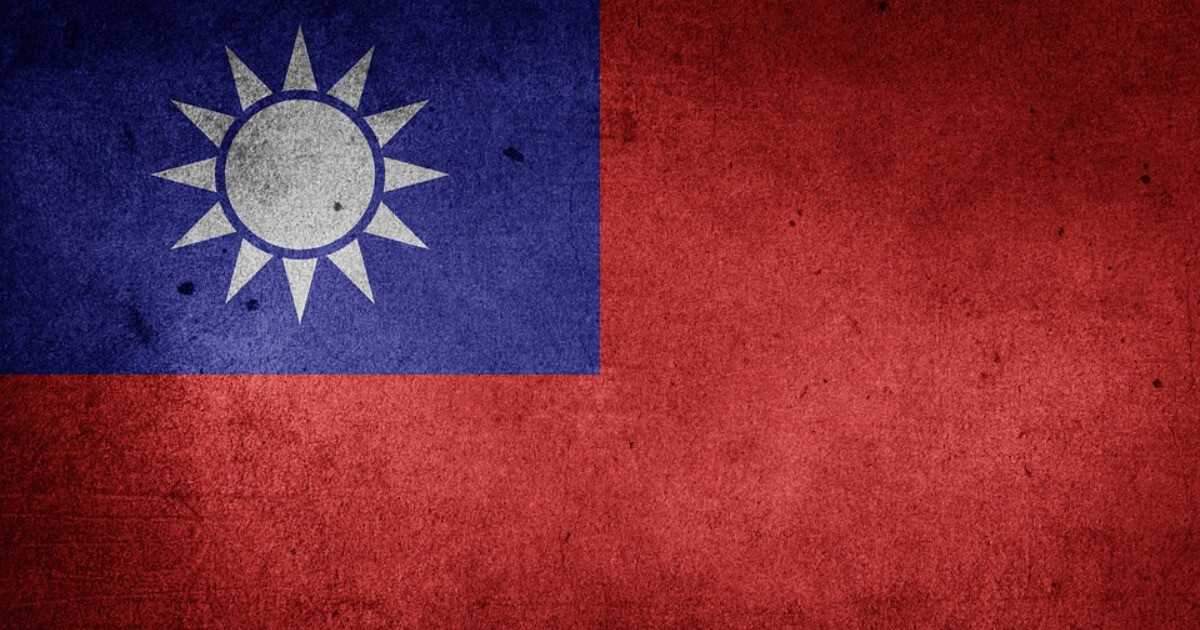The Battle Over Taiwan
Presidential elections in Taiwan and the U.S. in 2024 could add some spice to the geopolitical battle over Taiwan.
October 8, 2023

A Global Ideas Center, Strategic Assessment Memo (SAM) from the Global Ideas Center
You may quote from this text, provided you mention the name of the author and reference it as a new Global Ideas Center, Strategic Assessment Memo (SAM) published by the Global Ideas Center in Berlin on The Globalist.
In recent years, Taiwan has become a major battleground in the great power rivalry between China and the United States. A number of factors have contributed to geopolitical tensions between China and Taiwan, which Beijing considers a renegade province that must be reunited with the mainland.
Taiwan and China shift in different directions
Taiwanese public opinion has shifted such that a majority of the population sees themselves as having a Taiwanese identity, rather than Chinese. A majority would also prefer to maintain the political status quo, rather than unifying with China.
Taiwan’s democratization, which began in 1987, provides a stark contrast to the authoritarianism and repression in China.
Democracy has seen an alternance of presidents between the Kuomintang Party (KMT) and the Democratic Progressive Party (DPP).
While relations with China have been generally cooperative under KMT presidents, they have been tense under DPP presidents, in light of that party’s preference for a more independent Taiwan.
Beijing’s impatience, under President Xi Jinping, to unite Taiwan with the mainland has exacerbated relations, as has China’s rapid military buildup.
And Beijing’s treatment of Hong Kong has discredited the “one country, two systems” formula which China has floated as a model for unification.
Volatile term of Taiwanese president, Tsai Ing-wen
The term of office of the current Taiwanese president, Tsai Ing-wen of the DPP party, began in May 2016, and has thus overlapped the presidency of China’s Xi Jinping. Not surprisingly, there has been a dramatic deterioration in relations.
Xi Jinping’s China is hypersensitive to any suggestion that Taiwan might seek independence. Thus, China reacted vociferously to Tsai’s refusal to recognize the “1992 Consensus” by which both China and Taiwan agreed that there was one China.
In retaliation, Beijing has been working to isolate Taipei. It has convinced some of Taiwan’s small coterie of diplomatic allies to switch camps. During the COVID pandemic, Beijing refused to allow Taiwan to participate in the World Health Organization.
China and Taiwan are also in the midst of modern warfare, through China’s cyber interference, disinformation campaigns, economic coercion affecting Taiwanese exports to the mainland and other grey-zone activities.
But China is unlikely to invade Taiwan in the foreseeable future, despite some arguing “Ukraine today, Taiwan tomorrow.” Coercion without violence is China’s preferred strategy.
U.S. tests limits of one-China policy
For its part, the United States maintains its adherence to the one-China policy, and its position that the unification of Taiwan and China should be only undertaken peacefully, without coercion by China.
However, in recent years, U.S. actions have been testing the limits of the one-China policy, thereby provoking the ire of Beijing.
In August 2022, the then speaker of the U.S. House of Representatives, Nancy Pelosi, the third-highest-ranking U.S. official, visited Taiwan.
Taiwan president Tsai Ing-wen visited the United States in March 2023 and met House speaker Kevin McCarthy. In August 2023, the Biden administration approved a new $500 million arms sale to Taiwan, and the United States provides training to the Taiwanese military.
U.S. President Joe Biden has indicated four times that he would use the U.S. military to defend Taiwan if China ever attacked the island. And the two sides are working on a “21st Century” trade initiative.
Taiwan is now a strategic asset for the U.S.
The United States has every reason to work to ensure the maintenance of Taiwan’s de facto independence.
Taiwan would be the tenth most democratic jurisdiction in the world, and the most democratic in Asia, according to the Economist Intelligence Unit’s Democracy Index 2022.
The U.S. Congress has a very strong resistance to the idea of sacrificing democratic Taiwan to the increasingly authoritarian Beijing.
Taiwan is a critical node within East Asia’s first island chain, anchoring a network of U.S. allies and partners that is critical to the region’s security and vital U.S. interests in Asia. The loss of Taiwan would undermine the credibility of the United States as an ally of Japan, Korea, the Philippines and Australia.
Taiwan is also a dominant force in the semiconductor industry, notably through the Taiwan Semiconductor Manufacturing Company (TSMC). The country produces over 90% of the world’s most advanced semiconductors.
In sum, Taiwan has become an important strategic asset, which the United States would prefer to keep in its democratic camp – especially now that it considers China an adversary rather than a strategic partner.
Taiwanese and U.S. election will drive the roller-coaster in 2024
Taiwan’s next presidential elections will take place in January 2024. After two terms in office, president Tsai Ing-wen, is not able to run again. At this stage, the DPP candidate Lai Ching-te is leading in the polls.
But the other candidates – Hou You-yi for the KMT, Ko Wen-je for the Taiwan People’s Party and independent Terry Gou – cannot be ruled out.
Needless to say, the non-DPP candidates all claim that they are better placed to manage relations with Beijing, while the DPP fears that these candidates might sell out Taiwan’s de facto independence. At the same time, China is gearing up its interference and intimidation activities.
On the other side of the Pacific, the United States will be holding its next presidential election on November 5, 2024, and Donald Trump is the leading Republican candidate.
This former president, who is convinced of his own abilities in “The Art of the Deal” could well be tempted to resuscitate the U.S./China partnership, and sacrifice our Taiwanese friends in the process.
In sum, the outcome of these elections could be crucial, not only for Taiwan’s political future, but also for the trajectory of U.S./China great power rivalry.
Takeaways
Presidential elections in Taiwan and the U.S. in 2024 could add some spice to the geopolitical battle for Taiwan.
Taiwan has become a major battleground in the great power rivalry between China and the U.S.
The majority of Taiwanese identifies as Taiwanese, rather than Chinese – and prefers to maintain the political status quo rather than unifying with China.
Taiwan’s democratization provides a stark contrast to the authoritarianism and repression in China.
Xi Jinping's China is hypersensitive to any suggestion that Taiwan might seek independence.
The loss of Taiwan would undermine the credibility of the U.S. as an ally of Japan, Korea, the Philippines and Australia.
China is unlikely to invade Taiwan in the foreseeable future, despite some arguing “Ukraine today, Taiwan tomorrow.” Coercion without violence is China’s preferred strategy.
A Global Ideas Center, Strategic Assessment Memo (SAM) from the Global Ideas Center
You may quote from this text, provided you mention the name of the author and reference it as a new Global Ideas Center, Strategic Assessment Memo (SAM) published by the Global Ideas Center in Berlin on The Globalist.
Read previous

Global Autocracy
Putin, the Stalinist
October 5, 2023

